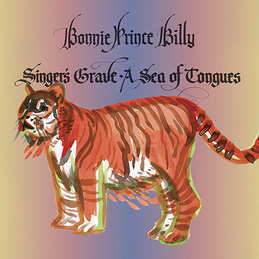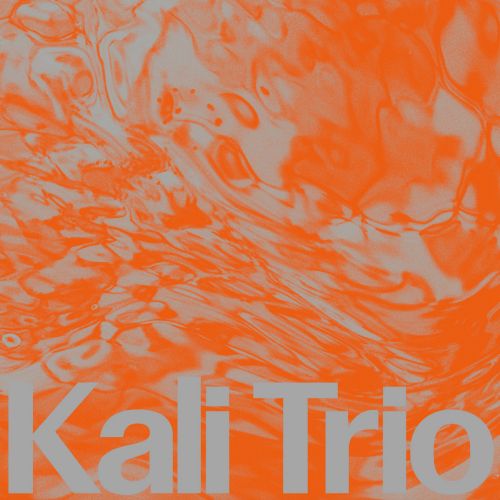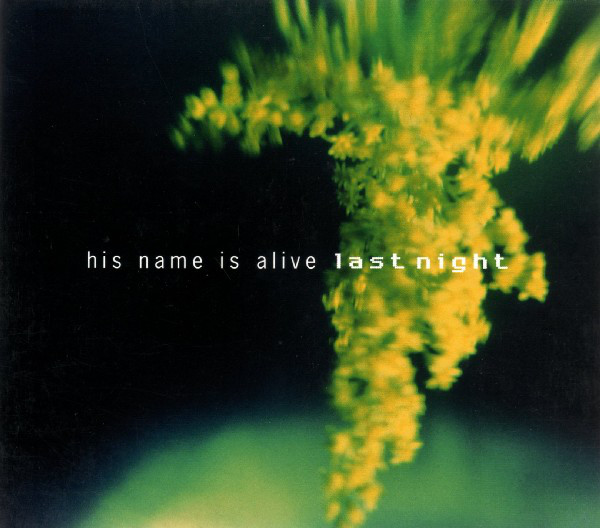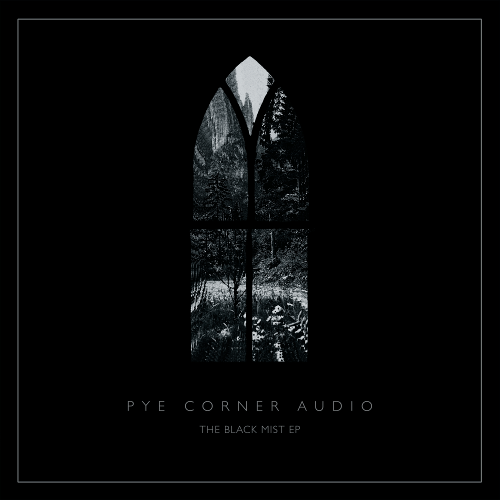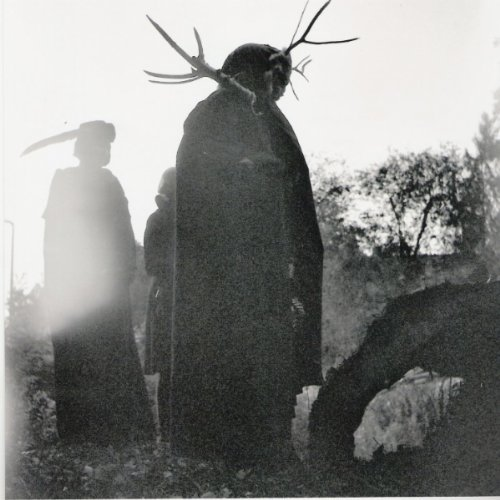 Sunburned Hand Of The Man member Paul Labrecque turns his hand here as Head Of Wantastiquet to his own particular variation on American primitivism, taking the form down meanders which can be as strikingly wondrous as the packaging the record is released in. Both the music and visual imagery are redolent of shadow-dappled ruralism and forest-dweller rusticism, though rather than the US backwoods, Dead Seas was recorded in Labreque’s Belgian home. With deeply mysterious mastering by echo-loving Fear Falls Burning and dedicated to the late Jack Rose, it’s no surprise that the album steps into the chiaroscuro places somewhere in between lengthy ominous drone passages and a spine-tingling deployment of rugged electric slide-guitar, banjos and other folk instrumentation turned to delicately nefarious purposes.
Sunburned Hand Of The Man member Paul Labrecque turns his hand here as Head Of Wantastiquet to his own particular variation on American primitivism, taking the form down meanders which can be as strikingly wondrous as the packaging the record is released in. Both the music and visual imagery are redolent of shadow-dappled ruralism and forest-dweller rusticism, though rather than the US backwoods, Dead Seas was recorded in Labreque’s Belgian home. With deeply mysterious mastering by echo-loving Fear Falls Burning and dedicated to the late Jack Rose, it’s no surprise that the album steps into the chiaroscuro places somewhere in between lengthy ominous drone passages and a spine-tingling deployment of rugged electric slide-guitar, banjos and other folk instrumentation turned to delicately nefarious purposes.
The primitivism on display is one which is quite as capable of turning off on a tangent similar to the one explored in all-night LSD sessions by the original Amon Düül communal group (and of course also by Sunburned Hand too) but in a vastly stripped-down way; and despite his new European locale, Labrecque’s music is remains as American as windfall apple pie and a hardy Appalachian mom. The occasional hesitancy with which he plays points to someone who seems almost as if he is channelling rather than composing, letting the sounds flow into one another with a decorous beauty that owes much to the harmonic layering as it does to some major-key brightness. Which is not to say that Dead Seas is conventionally pretty by any means, unless one’s notions of ordinary musical loveliness come through the filter of John Fahey, and perhaps even Cul de Sac and their electric version of the same thread of American avant-rock that is folk but not entirely trad; though Dead Seas has its moments which are as within the mountain tradition as firmly as anything played by 16 Horsepower.
Fahey’s influence is perhaps obvious, but heartening inasmuch as he pioneered and revived so much and so widely that there’s still plenty of mileage in following the path he blazed; but there’s a hint too of The Red Crayola’s wasted psych fuzz and the particular strain of dopehead wistfulness they engendered here among the complexly-intertwining thrum of metal-strung acoustic guitars and elegiac picked banjo. When the words come, they seem distanced and echoed into near-glossolalia, a gentle speaking in tongues which is as plaintive as the accompanying fiddle, and there are moments which are as beautiful as those found in Bruce Langhorne‘s seminal Hired Hand soundtrack (and essential reference point for this sort of sound), where the wheeze and turn of acoustic instruments blend into a languorous hypnotic state as old as the hills and the people who colonized them with their various musics.
-Richard Fontenoy-
